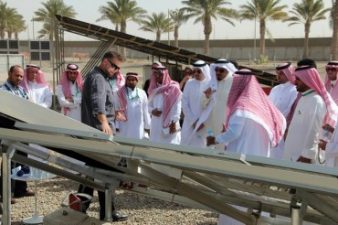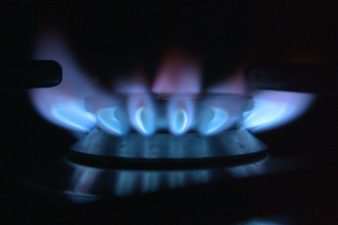 Jordan is the first country in the Arab world to offer its residents an opportunity to earn money through feed-in-tariffs (FITs). The Electricity Regulatory Commission (ERC) announced last week that citizens of one of the world’s most fuel-deprived nations can sell energy generated with solar panels for 120 fils per kilowatt/hour (kw/h) and wind power for 85 fils per kw/h, The Jordan Times reports. Albeit seemingly insignificant, the move is expected to mitigate the dual problems of excess energy consumption and unfulfilled demand.
Jordan is the first country in the Arab world to offer its residents an opportunity to earn money through feed-in-tariffs (FITs). The Electricity Regulatory Commission (ERC) announced last week that citizens of one of the world’s most fuel-deprived nations can sell energy generated with solar panels for 120 fils per kilowatt/hour (kw/h) and wind power for 85 fils per kw/h, The Jordan Times reports. Albeit seemingly insignificant, the move is expected to mitigate the dual problems of excess energy consumption and unfulfilled demand.
Instituting FITs for energy generated using renewable sources is the last in a series of measures taken by Jordan to bridge the gap between its energy demand and supply.
“With rising international oil prices, the government has been looking for ways to reduce electricity demand and costs,” ERC Chief Commissioner Mohammad Hamid told reporters, according to the paper.
“We found that the best way to achieve both is by encouraging Jordanians to go solar.”
Individuals, small businesses and the industrial sector are encouraged to use the new FIT system, which could facilitate energy savings of up to 70 per cent each month.
“A large factory can save as much as JD11,799 (USD16, 641.75) per year with a 50 kilowatt solar array,” the ERC noted.
Like its neighbor Israel, the Hashemite Kingdom has long relied on natural gas from Egypt to satiate a growing energy demand – an unhealthy dependence underscored by a series of attacks on Egypt’s pipelines over the two years.
While the new FIT program will slash Jordan’s energy consumption and slow its greenhouse gas emissions, and this is a positive development, this new policy should not be seen as an altruistic measure.
Jordan is so desperate to strengthen its resilience to changes in an already wobbly energy supply chain, it will accept just about any source – regardless of its environmental impact.
This is best illustrated by the Ministry of Energy and Mineral Resources’ near unchecked plan to build oil shale plants throughout the Kingdom. The most recent Memorandum of Understanding signed with Global Oil Shale Holdings (GOSH) is the fourth such deal penned to date.
Even so, the ERC’s announcement ushers in a new era of possibility. Whilst there is little indication that Jordanian residents will receive much assistance to purchase their solar panels, which cost up to $2,500, the payback period should end within five to seven years of the initial investment.
:: Jordan Times




The Palestinian National Authority has already determined the FIT as a an incentive and the Palestinian Solar Initiative approved accepts applications to install PV panels for household sector.